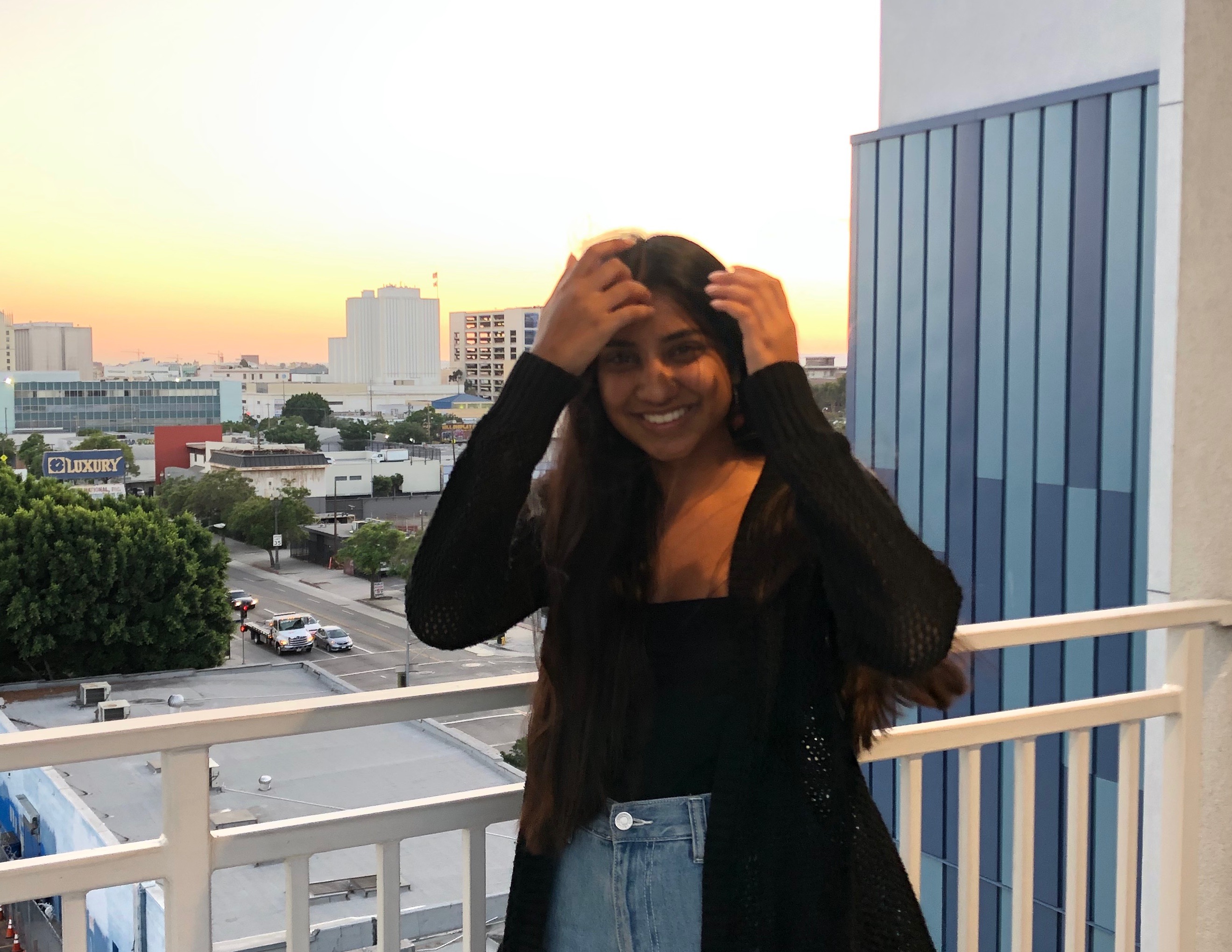Featured UCLA Feminist: Anjali Singhal

Anjali Singhal, second year pre-global studies major, believes her relationship with feminism has allowed her to be herself. Anjali felt a strong pull towards feminism when she realized the unequal power balance between the socially constructed genders. She particularly saw this in her parent’s assumed roles in their marriage. She was aware early on that her mother sacrificed her career to stay home and care for her and her brother. Her father, on the other hand, was able to achieve his career goals and controlled the financial decisions for the family. She recalls that this progressive realization was her feminist awakening. It was a period in her life when she decided she was not going to let “old traditional sexist values that [her] culture has imposed upon women” interfere with her autonomy and professional goals.
When asked what feminism means to her, she made a point to emphasize the necessity for inclusive, intersectional feminism that extends beyond gender equality. She sees the equal treatment of everyone as the purpose of modern-day feminism. Without inclusion, it entirely defeats the point of feminism. This belief reigns true as something I have always admired about Anjali.
I first met Anjali during the fall quarter of our freshman year at a club meeting. As two of the only freshmen there, it was not long before we became acquainted. As soon as our conversations turned political, I knew we were going to be friends. She is not someone who would shy away from sharing her opinion. Instead, she is eager to jump into a conversation to put someone in their place, an act I have witnessed a number of times. It is something I value as I can count on her to keep people in check and make sure they are inclusive in their language and mannerisms.
Anjali is a feminist through her environmental activism. As the co-director of SWC Earth, she is incredibly passionate about environmental health. Anjali sees environmentalism as a feminist issue because environmental change disproportionally affects the globe, having a more significant impact on minorities and women, especially in the Global South. She used the example of fast fashion to further her point. Fast fashion is the production of cheap quality clothes at a cheap price. It is an unsustainable way of shopping and creating textiles, as the clothes are designed to last only one season. The clothes are made in sweatshops, which primarily hire women laborers. In these jobs, women are subjected to long hours at low hourly wages where the workers are treated unfairly, have no job security, and work under unsafe conditions. Anjali sees fast fashion as a perfect example of the intersectional issues that exist in the world today and refuses to buy from immoral companies. Additionally, she aims to get others to do the same by leading as an example and shopping sustainably.
The future of feminism for Anjali looks like the breaking of barriers and combatting previous restrictions. She wants to see feminism as “a force rather than a movement,” which she described as being more powerful than a movement. For her, a force is something that requires “active participation and active change.” She wants more people to connect with the ideals of intersectional feminism as it turns into a “force” that everyone can participate in and identify with.




